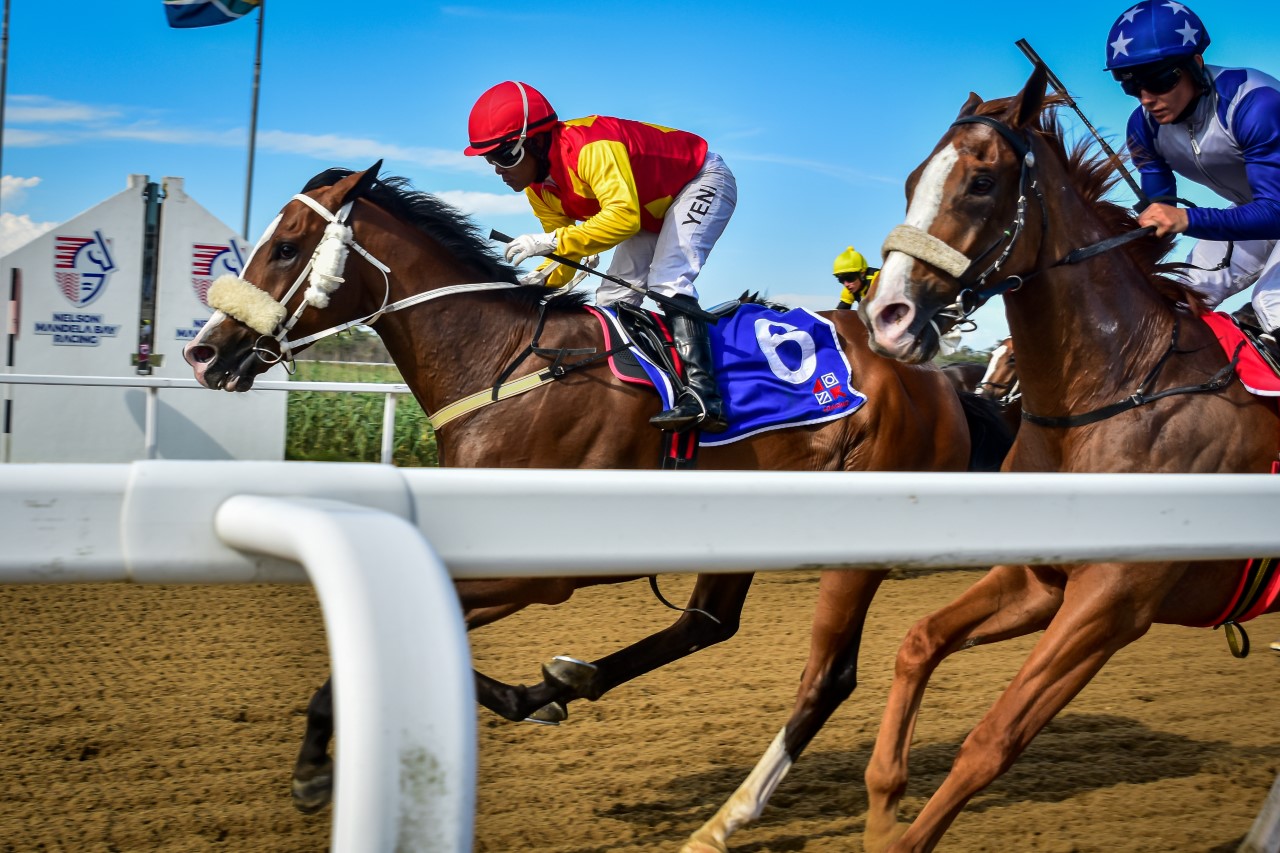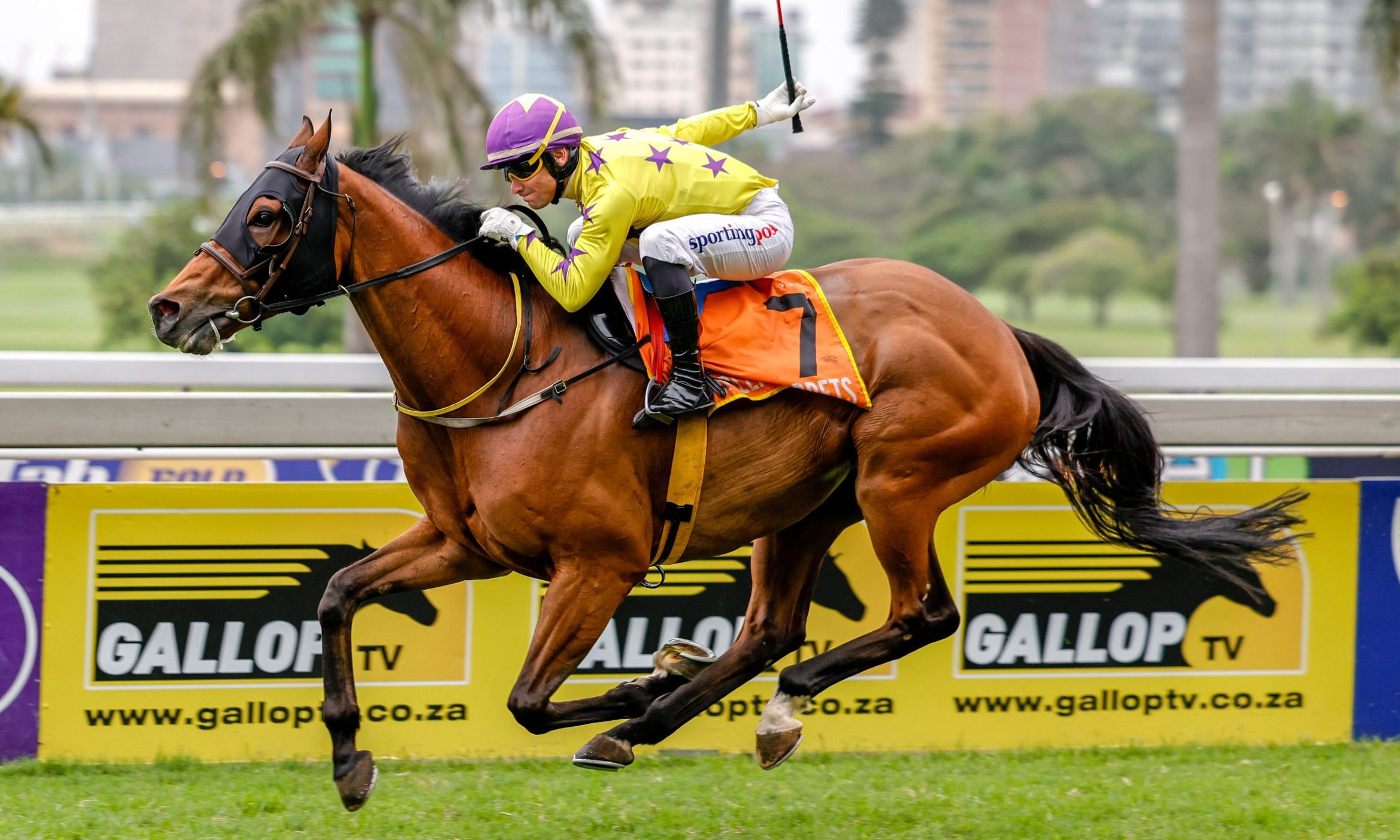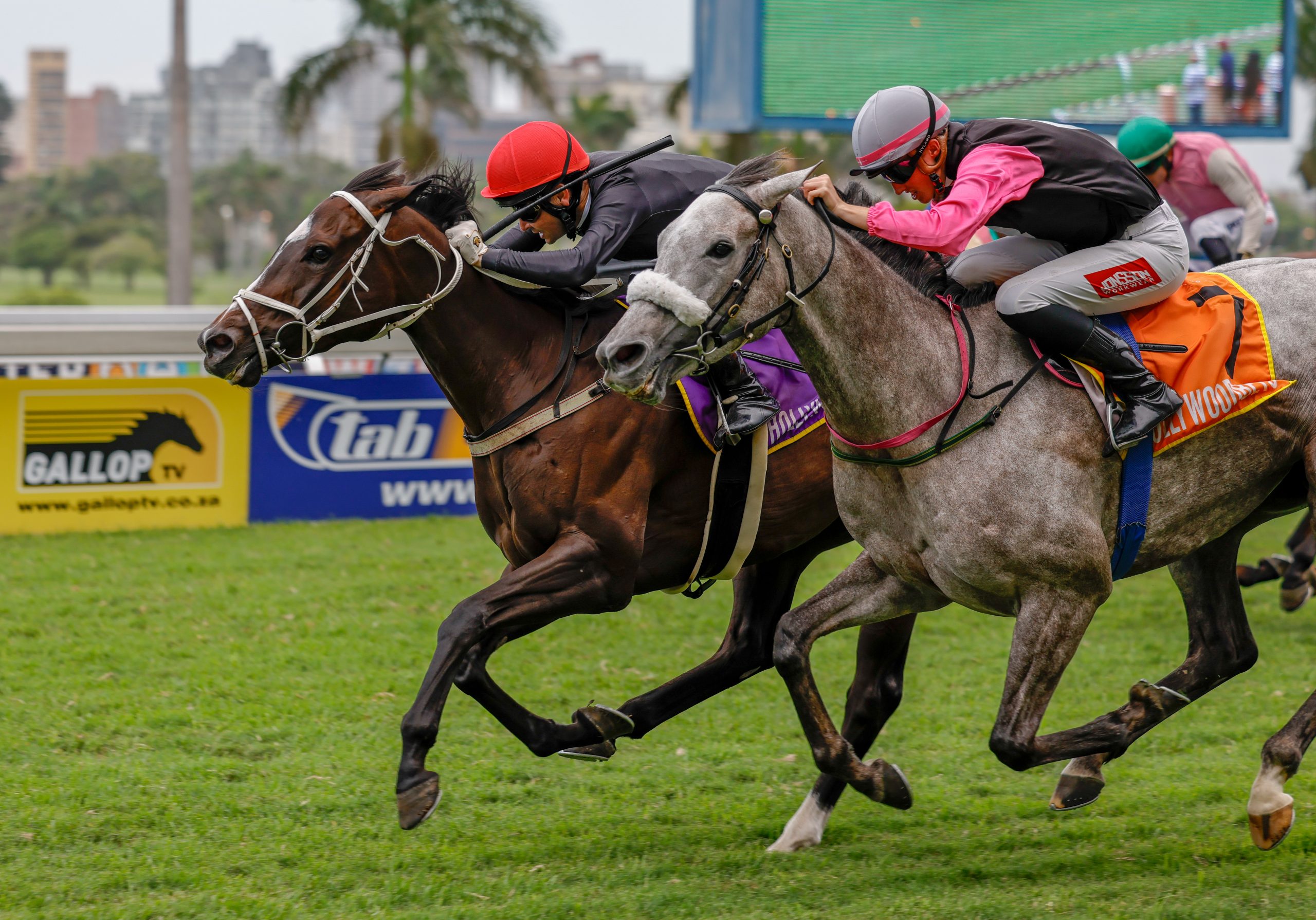 Wait A Minott
Wait A Minott
Growing up on a spelling farm was enormous fun, but it still took years of begging before I was allowed onto any of the ‘proper’ horses. I’d more or less given up on the idea, when my dad hauled me out of bed in the near dark one morning with the words ‘come, we’re going riding’. Such invitations were not extended often, so I grabbed my kit and raced down to the stables. My mount was already saddled and ready and plunging around her groom, her hot breath exploding in clouds in the air and making her look even more like a demon. Underrated was a Cape Hunt horse, but still a solid 17hh of rocket fuelled racing muscle and my heart sank to my boots. However, having got this far, I could not back out now.
I was boosted on board, landing neatly behind the postage stamp posing as a saddle, lengthened the stirrups as far as they would go and still felt as though my knees were under my chin. I was shown how to bridge my reins and just before setting off, I had to hand over my glasses (‘But I won’t be able to see?!’ – ‘Ag, doesn’t matter’). Right. I swallowed hard, pointed the big bay ears through the mist and headed in the general direction of the track.
I was just starting to get the hang of things when we reached the straight and my life changed forever. Underrated exploded beneath me and I was suddenly in the eye of a hurricane. I remember the sensation of the cold on my face, the wind roaring around my ears, my eyes streaming and my arms being wrenched from their sockets. But the short stirrups and bridge in my reins suddenly came together – I stood up and felt that big stride rolling out beneath me and we were flying ! It was one of the most gut-wrenching, breath-taking, eye-watering, knee-wobbling experiences of my life. But I was hooked.
I had grand ambitions to take to the turf and actually had a spin on the green stuff once, but sanity and self-preservation prevailed and well, here I am. In a nice, safe office job (although considering the boardroom politics and backstabbing I’ve seen in my life, a life on horse-back may well have been a safer option !!).
Anyway, fortunately there are girls made of sterner stuff and after the brave and pioneering Cathy Dalton we have seen an increasing number emerge through the South African jockey ranks.
.
Doyenne of the Turf
Heroes are generally people we admire for doing things that we cannot, and someone who is out there living one of my dreams is the bright, bubbly girl with the mega-watt smile, Vicky Minott.
Vicky is a KZN native and has been riding since she was tiny. She giggles while telling of looking like a page out of a Thellwell book with her little legs barely making it past the saddle flaps.
Although she originally enrolled at the Academy’s SANEF stable management course, the racing bug bit. Vincent Curtis taught her to ride work during weekends and holidays and as she was the right size and weight, she applied and made a successful transition to the Jockey programme in 2005.
With her quick smile and mischievous blue eyes, it would be easy to assume that Vicky doesn’t take life too seriously, but it is a real achievement for someone to make it all the way through the Jockey Academy and even more so to go on and achieve riding success. Being a female and taking on the boys at one of the toughest physical and mental challenges around is no mean feat and speaks volumes. What’s that expression about Ginger Rogers doing everything Fred Astair did, only backwards and in high heels ?
Vicky prides herself in not only being treated as an equal by her peers, but behaving like one as well. She grew up with an older brother Gavin, which could only have been an advantage in the peculiarly male-dominated world of racing. However, Vicky says that while she made a lot of friends at the Academy, she was careful to foster a reputation for treating people with dignity and respect and expecting to be repaid in kind.
Vincent Curtis relates that during her stint at the apprentice house in Cape Town, she ran a tight ship and kept the boys in line. She says that the boys are still apologetic if their language gets too colourful in her presence!
.
Early Career
Vicky’s career started in Durban and she rode her first winner, Silver Sun, for Mike Riley. She also enjoyed a lot of support from Michael Roberts who she speaks of very warmly, describing him as ‘very supportive, down to earth and always laughing’. There was a filly in his string that she helped bring on and finally got to ride and win on. Although the filly unfortunately bled, Vicky recalls the win on that filly and for Michael Roberts as a particularly special and memorable early career high.
Vicky relates that her 2007 move to Cape Town was a very positive one for her. She was fortunate to have a good run when she first came to Cape Town with her first few rides all being in the money (including a memorable win on Diana’s Choice on Met day). ‘Racing comes down to results and success breeds success’. People gave her a lot of chances and used her a lot when she was still claiming, but she admits that the transition from being an appy to a full weight jockey has been difficult.
As an apprentice, she could use the weight advantage to go out to the front, but without it, she has to re-think her style. Losing her claim has also led to being offered fewer rides. With her refreshing candor she says that it’s hard to ring up to ask for rides and be turned down, but she knows that racing is a constant cycle of ups and downs. She says that she is learning more about racing and riding now than ever before.
She defines a good jockey as one who makes fewer mistakes in a race than the other riders. Every mistake you make takes a little of the horse’s chance away. Improving means making fewer mistakes. How do you do it? Well, there’s an old cowboy saying that learning to ride well doesn’t take good luck or exceptional talent, just wet saddle blankets and Vicky knows that she’s just got to keep working, keep learning and wait for the wheel to turn.
.
Role Model
Asked whether she models herself on any existing jockeys or relies on her own style, Vicky describes herself as a work in progress. As an appy, she adapted her style to take maximum advantage of the weight deficit. That approach doesn’t work now that her claim is gone and she has had to change her style to think and ride more strategically, so she is fine tuning and evolving her style as she goes along.
A rider she finds inspirational is Karl Neisius. His career has endured and survived lots of different trends and styles and he maintains an incredibly calm approach to everything. She notes that he is incredibly relaxed on a horse, even at work and the horses really pick up and connect to that. He has great timing and is wonderful to watch.
.
Changing Styles
I mention that there has been a recent, fairly unkind on-line debate about female riders being physically weaker than their male counterparts to which she cheerily replies that ‘of course one can’t argue the point, the beauty of horses and racing is that yes, you need strength, but it’s not about strength. It’s about your hands, and balance and feel of the horse and how it responds to you’.
She works with a personal trainer on a daily basis to maintain her muscles and muscle mass, but feels that her keys strengths of feel, balance and natural empathy make horses want to run for her. Knowledge is power in any game, but this is particularly true of racing with the big money and tiny windows of opportunity involved and here women have a unique advantage.
Being prey animals, horses are programmed to mask pain and injury so as to avoid appearing vulnerable to potential predators. What women may lack physical strength, they more than make up for with their feel and intuition. Women are naturally more attuned to individual characteristics, personality changes and subtle, physical nuances that others might miss and these are often valuable early indicators of a horse turning a corner, or feeling the onset of an injury. And with our natural propensity to verbalize thoughts and feelings, it is easier to communicate and give a much more comprehensive picture about a horse. Judging by the large numbers of big name stables that employ female work riders, it is evident that this insight is of huge value.
Vicky reflects that this valuable feedback mechanism is something that has been lost with the new freelance system. In the old days, trainers, stable jockeys and apprentices all shared knowledge and worked together towards a common goal, building up a pool of knowledge in the process. However, these days everyone is about working smart, not hard, so this spirit of cooperation is disappearing. The current system is fragmented, making it much harder for a trainer to gain consistent and accurate information about his charges and also making it harder to build those all important trainer / jockey partnerships that used to be the hallmark of racing success.
.
Shane Humby
Vicky regards herself as being very fortunate in riding a lot of work for Shane Humby. She feels that they have built a good working relationship based on open and honest communication. Shane allows her to express her thoughts and opinions and she is hugely appreciative of the opportunity to work for someone who is interested in that level of detail. Not only does he listen, but he’s prepared to act on her feedback and investigate where necessary. The team approach gives the horses the best care and identifying the cause of any issues helps her learn to develop and trust her judgment. This is a key element that Vicky feels is missing under the freelance system.
.
Success
Asked about her opinion on what it takes to be a successful jockey, Vicky answers that everybody loves winning! However, what defines success for her is preparing a horse just right so that all the key elements fall into place correctly on race day. It also means working with the horse and trainer on an on-going basis to keep a horse sound and constantly improving throughout its career. You are the driver once you’re out on the grass, so you need to know the horse and its level of fitness and development, so that you can make informed, split-second decisions about how to place it where you need it to be.
So exactly how easy is it to place a horse ? Well, obviously you discuss the race strategy with your trainer before each race. Then you have to add in the many variables such as your draw, the track conditions, who you’re riding against and try to find the best solution. There is not a lot of time to strategize and you need to be quick and be focused and come out of the pens thinking about where you want to sit.
Interestingly, she says you need to know and plan around your fellow jockeys almost more than planning around your horse, which is something that can prove difficult. Vicky feels that she is a naturally open, honest person and in such an intensely competitive, yet enclosed environment, it is difficult to strike the right balance of being friendly, maintaining enough of a professional distance to go out there on a daily basis and be competitive.
Whilst that can make it rather a lonely job at times, she is not prepared to compromise. Her pride and self respect are very important and Vicky feels very strongly that she wants to succeed her way.
.
Crowd Support
It seems she is being noticed and making an impression with local fans, which she feels is a legacy from the early days when she was a good value bet. Being the only girl also helps of course. Vicky feels that she’s a personality that people can recognise and identify with and you can hear the smile in her voice when she says ‘Everyone knows Vicky!’ There are always lots of comments and she loves chatting to the crowds. A particular favourite is a little boy who often comes racing with his dad. Vicky says he spotted her in the parade ring one day and called out ‘How’s my chicken ?’ She giggled all the way down to the start and now makes a point of looking out for him.
There is a lady who is a regular member of the crowd and shouts – ‘Vicky, shake what your mamma gave you!’
Other than that her family are her biggest fans. Her grandparents follow her career closely and her Dad, family and friends are all big supporters.
.
Lucky Charm ?
Racing can be quite an interesting place with lots of people having little rituals and lots of things that are good and bad luck on race days. Vicky says that she tries not to be too superstitious, but she does have a special pair of ankle socks that she wears on race days. One day back at the Academy, a fellow appy was running late and borrowed the socks without telling her. Vicky had to use a substitute pair and that was the day she fell and broke her back. She says that it is probably just coincidence, but she’s not taking any chances !!
.
Public Perception
Vicky recently attended a race day as a spectator, rather than a rider and said it was very disappointing to see it from the crowd’s perspective. She says that as a jockey and industry ‘insider’, it is easy to take for granted how much information she has access to. She was shocked by how little of that information gets communicated to Joe Public and how much of the fun and magic is simply lost. And this extends beyond the punters to the general public as well. Vicky tells of meeting a girl who lives in one of the Paddocks complexes who had absolutely no idea where or how racing takes place. It seems that the general public are under the impression that The Met and July are the only days people go racing !
The other problem is the perception that the game is crooked and that the horses are on drugs. There is little understanding about the tight control measures such as the Stipes, TV cameras and mandatory specimen testing that goes on and she feels that a greater awareness would do a lot to lift the reputation of the sport. We should also do more to capitalize on the uniqueness of our product. It is an incredible sport and the horses and jockeys are elite athletes – if we could do more to market ourselves and get the public to understand and connect with what we are doing, they would learn to enjoy, understand and admire it.
.
Industry Ambassadors ?
Asked whether she could think of anyone who would make a good industry ambassador and raise awareness for the sport, she responds immediately with ‘Me ! I could do it !’
And why not ? I keep saying that we need heroes in the game – the sort of personalities that people can identify with and feel they can really get behind and support. Vicky has an appealing no-nonsense, down to earth approach. She’s articulate and engaging and possessed of a maturity far beyond her years. She’s funny and gutsy and perhaps just the breath of fresh air we need to get a few more people back to the track.
So I wholeheartedly second the lady down on the rail – ‘Vicky, shake what your mamma gave you!’








